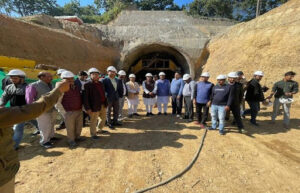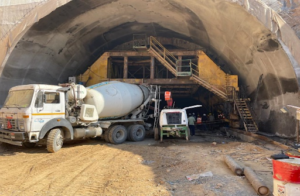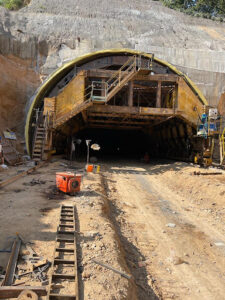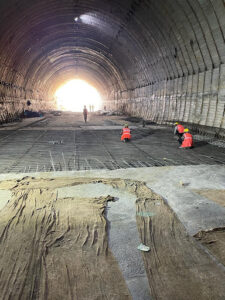Development of Six-lane access-controlled highway (Dat Kali Tunnel of Ganeshpur-Dehradun section of NH-72A in the state of Uttarakhand under Bharatmala Pariyojna on EPC Mode




The Delhi-Dehradun Expressway has reached a major milestone with the commencement of construction on the final 20 km stretch of the expressway, which passes through the eco-sensitive zone of Raja Ji National Park. This stretch includes the construction of a 340 meter long Daat Kali Tunnel, which will be an important feature of the expressway as it intends to protect the surrounding wildlife.
This expressway, when completed, is expected to greatly reduce the travel time between Dehradun and Delhi, bringing it down from six hours to just 2.30 hours, and similarly, reducing the travel time between Delhi and Haridwar from five hours to two hours. This expressway is a part of the Delhi Dehradun Economic Corridor, which is estimated to be completed by March 2024. The final stretch of the Delhi-Dehradun Expressway will connect Dehradun via the new Dat Kali Tunnel, which is expected to be a game changer for the overall transportation infrastructure in the region.
A remarkable achievement in the construction of this project was the breakthrough in the tunnel which was achieved in just 144 days. This is a testament to the dedication and hard work of the construction team and the efficiency of the construction methods used.
The construction of the expressway is being undertaken in EPC mode (Engineering, Procurement and Construction), which is a mode of project delivery that involves a single point responsibility for the design, construction, commissioning, and maintenance of the project. This mode of delivery is considered to be more efficient and cost-effective as it allows for better coordination among the project partners and minimizes the risk of delays and cost overruns.
The development of this six-lane access controlled highway is also a part of the Bharatmala Pariyojna, a ambitious national highways project by the government of India, aims to upgrade, improve and expand the overall National Highways network in the country, thereby enhancing connectivity and reducing travel time between key cities and towns.
The construction of the expressway is expected to bring numerous benefits to the local population, the commuters and the economy. It will improve the traffic flow, increase road safety and reduce travel time, thus making this section of the highway more efficient and effective for all types of vehicles. Furthermore, the construction has been done in a way to minimize the impact on the wildlife and natural habitats. The expressway would also help in promoting tourism, creating job opportunities and most importantly improving the overall economy of the state.
In conclusion, the development of the six-lane access controlled highway passing through the eco-sensitive zone of Raja Ji National Park is a major milestone in the Delhi-Dehradun Expressway project. It is expected to greatly reduce travel time and enhance connectivity between key cities and towns in the region, while minimizing its impact on the surrounding wildlife.
